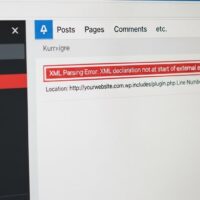The backend development landscape has evolved significantly, with frameworks becoming more specialized, performant, and equipped to handle modern application demands. As organizations increasingly adopt microservices architectures, artificial intelligence integration, and cloud-native deployments, selecting the appropriate backend framework has become a critical strategic decision that impacts development velocity, application performance, and long-term maintainability. This comprehensive guide examines the leading backend frameworks dominating the development ecosystem, providing detailed insights into their capabilities, performance characteristics, and optimal use cases to help development teams make informed technology choices.
Understanding Backend Frameworks and Their Critical Role in Modern Web Development
Backend frameworks serve as the foundational infrastructure that powers server-side application logic, orchestrating everything from database interactions and API endpoint management to authentication protocols and business logic processing. These sophisticated software systems provide developers with pre-built components, standardized architectural patterns, and optimized utilities that dramatically accelerate development timelines while maintaining code quality and security standards. In the contemporary development environment, backend frameworks have transcended their traditional role of simple request-response handling to become comprehensive ecosystems that facilitate complex operations including real-time data streaming, distributed system coordination, and advanced security implementations.
The architecture of modern backend frameworks typically encompasses several essential components that work in concert to deliver robust application functionality. These frameworks provide routing mechanisms that efficiently map incoming HTTP requests to appropriate controller functions, middleware layers that process data and handle cross-cutting concerns such as logging and error management, and object-relational mapping systems that abstract database operations into intuitive programming interfaces. Additionally, contemporary frameworks incorporate sophisticated security modules for authentication and authorization, dependency injection containers for managing component lifecycles, and comprehensive testing utilities that ensure code reliability across diverse deployment scenarios.
The Evolution of Backend Framework Selection Criteria in 2025
The criteria for evaluating and selecting backend frameworks have undergone substantial transformation as application requirements have grown increasingly sophisticated. Performance metrics now extend beyond simple throughput measurements to encompass latency characteristics under various load conditions, memory efficiency during high-concurrency scenarios, and resource utilization patterns that directly impact cloud infrastructure costs. Development teams must also consider scalability dimensions, examining how frameworks handle horizontal scaling across distributed systems, vertical scaling on enhanced hardware configurations, and the architectural patterns they support for building resilient microservices.
Developer experience has emerged as a paramount consideration, with organizations recognizing that framework choice directly influences productivity, code maintainability, and team satisfaction. Modern evaluation frameworks assess the intuitiveness of framework APIs, the comprehensiveness and clarity of documentation resources, the availability of development tools and debugging utilities, and the learning curve associated with framework adoption. The ecosystem surrounding each framework has become equally important, with teams evaluating factors such as the maturity and diversity of third-party packages, the availability of integration libraries for popular services, and the strength and responsiveness of community support channels.
Django: The Python Powerhouse for Rapid Enterprise Development
Django maintains its position as one of the most respected and widely adopted backend frameworks, particularly excelling in scenarios requiring rapid development of secure, scalable web applications. Built on Python’s elegant syntax and extensive standard library, Django implements a comprehensive “batteries-included” philosophy that provides developers with an integrated toolkit encompassing authentication systems, database abstraction layers, template engines, and administrative interfaces. This holistic approach enables development teams to focus on implementing business-specific functionality rather than repeatedly constructing fundamental infrastructure components.
The framework’s Model-View-Template architecture promotes clean separation of concerns, facilitating code organization that remains maintainable as applications scale in complexity. Django’s object-relational mapper stands out for its robustness and security-conscious design, automatically implementing protections against common vulnerabilities such as SQL injection attacks while providing intuitive query interfaces that abstract complex database operations. The framework’s auto-generated administrative interface represents a significant productivity advantage, allowing teams to rapidly construct secure, functional data management interfaces that would otherwise require weeks of dedicated development effort.
Django demonstrates particular strength in content-heavy applications, making it the framework of choice for media platforms, content management systems, and educational technology products. Organizations including Instagram, Pinterest, and NASA have successfully deployed Django at massive scale, validating its capability to handle billions of requests while maintaining system reliability. The framework’s emphasis on security by default, with comprehensive protections against cross-site scripting, cross-site request forgery, and clickjacking attacks, makes it particularly suitable for applications handling sensitive user data or operating in regulated industries such as healthcare and finance.
Express.js: The Minimalist Framework Powering Node.js Applications
Express.js continues to dominate the Node.js ecosystem, serving as the foundation for countless APIs, microservices, and full-stack applications worldwide. Its minimalist, unopinionated design philosophy provides developers with maximum flexibility to structure applications according to specific project requirements while maintaining excellent performance characteristics. Express delivers just the essential components needed for web application development, including routing mechanisms, middleware handling, and HTTP utility methods, allowing teams to selectively incorporate additional libraries and tools as project demands evolve.
The framework’s lightweight architecture translates directly into impressive performance metrics, with Express applications routinely achieving high request throughput with minimal resource consumption. This efficiency makes Express particularly well-suited for building RESTful APIs that need to handle substantial concurrent request loads while maintaining low response latencies. The framework’s middleware-based architecture enables elegant composition of application functionality, allowing developers to chain processing functions that handle authentication, logging, data validation, and other cross-cutting concerns in a clean, maintainable manner.
Express shines in scenarios requiring real-time capabilities, seamlessly integrating with WebSocket libraries to enable bidirectional communication channels for applications such as chat platforms, collaborative editing tools, and live dashboards. The massive ecosystem surrounding Node.js and Express provides access to hundreds of thousands of packages through npm, offering pre-built solutions for virtually any conceivable functionality requirement. Development teams building isomorphic applications that share code between frontend and backend particularly benefit from Express, as JavaScript becomes the universal language across the entire application stack.
Spring Boot: The Enterprise Java Framework for Mission-Critical Systems
Spring Boot has solidified its position as the preeminent choice for enterprise-grade Java applications, simplifying the development of production-ready systems while leveraging the vast Spring ecosystem. The framework addresses many of the complexity concerns historically associated with Java enterprise development by providing intelligent defaults, automatic configuration, and embedded server capabilities that enable developers to create standalone applications without extensive XML configuration or complex application server deployments. Spring Boot applications can be packaged as executable JAR files that include all dependencies, dramatically simplifying deployment and distribution processes.
The framework excels in building robust microservices architectures, providing comprehensive support for service discovery, distributed configuration management, circuit breaker patterns, and distributed tracing that are essential for operating complex service meshes at scale. Spring Boot’s integration with Spring Cloud enables teams to implement sophisticated patterns for building resilient distributed systems, including service registration and discovery through Eureka or Consul, client-side load balancing with Ribbon, and declarative REST clients through Feign. These capabilities make Spring Boot particularly attractive for organizations transitioning monolithic applications to microservices architectures or building cloud-native applications from inception.
Financial services organizations, government agencies, and large enterprises favor Spring Boot for mission-critical systems due to its maturity, comprehensive testing support, and strong backward compatibility guarantees. The framework provides extensive integration capabilities with enterprise systems including message queues, transaction managers, and legacy protocols, enabling seamless incorporation into existing technology landscapes. Spring Boot’s emphasis on production-readiness includes built-in actuator endpoints that expose application metrics, health indicators, and operational information essential for monitoring and maintaining complex production environments.
Laravel: The PHP Framework Bringing Elegance to Web Artisanship
Laravel has revolutionized PHP development, transforming the language’s reputation and establishing itself as the premier PHP framework for building modern web applications. Created with developer happiness as a primary design goal, Laravel provides an expressive, elegant syntax that makes common web development tasks intuitive and enjoyable while maintaining the power and flexibility required for complex enterprise applications. The framework’s comprehensive feature set includes an advanced routing system, powerful queue management, scheduled task execution, and real-time event broadcasting capabilities that enable developers to build sophisticated applications efficiently.
Eloquent, Laravel’s active record implementation, stands as one of the framework’s most celebrated components, providing a beautifully intuitive interface for database interactions that makes complex queries readable and maintainable. The ORM supports eager loading strategies that optimize database query patterns, relationship definitions that clearly express data structure connections, and query scopes that promote code reusability. Laravel’s Artisan command-line interface accelerates development through code generation utilities that scaffold controllers, models, migrations, and other application components, reducing boilerplate code while maintaining consistent project structure.
The framework’s ecosystem has matured substantially, with first-party packages such as Laravel Horizon for queue monitoring, Laravel Telescope for debugging and insight gathering, and Laravel Sanctum for API authentication providing production-grade solutions for common application requirements. Laravel Nova offers a beautifully designed administration panel that can be rapidly customized to fit specific business needs, while Laravel Jetstream provides starter kits that include authentication scaffolding, team management, and two-factor authentication out of the box. These integrated tools enable development teams to deliver feature-complete applications in significantly compressed timelines compared to building equivalent functionality from scratch.
FastAPI: The High-Performance Python Framework Optimized for APIs
FastAPI has emerged as one of the fastest-growing frameworks in the Python ecosystem, specifically designed to build high-performance APIs with minimal code and maximum developer productivity. Built on modern Python features including type hints and asynchronous programming, FastAPI achieves performance levels comparable to Node.js and Go frameworks while maintaining Python’s characteristic readability and extensive library ecosystem. The framework automatically generates interactive API documentation using OpenAPI standards, providing developers and API consumers with up-to-date, testable documentation without additional effort.
The framework’s innovative use of Python type hints enables automatic data validation, serialization, and documentation generation, dramatically reducing the boilerplate code typically required for robust API development. Pydantic integration ensures that incoming request data is validated against defined schemas with clear, informative error messages when validation fails, preventing invalid data from propagating through application logic. This approach catches many bugs at development time rather than runtime, improving code reliability and reducing debugging cycles.
FastAPI excels in scenarios requiring high-performance APIs that handle substantial concurrent loads, making it particularly suitable for machine learning model serving, real-time data processing pipelines, and IoT applications that aggregate data from numerous devices. The framework’s built-in support for asynchronous request handling enables efficient resource utilization when interfacing with databases, external APIs, or other I/O-bound operations. Organizations building data-intensive applications or providing API services to high-traffic mobile applications find FastAPI’s combination of performance, type safety, and automatic documentation generation particularly compelling.
ASP.NET Core: Microsoft’s Cross-Platform Framework for Enterprise Applications
ASP.NET Core represents Microsoft’s modern, cross-platform reimagining of the .NET framework, designed to build high-performance web applications that run seamlessly across Windows, Linux, and macOS environments. The framework’s architecture emphasizes modularity and performance, with Microsoft investing heavily in optimization efforts that have resulted in impressive benchmark results showing ASP.NET Core consistently ranking among the fastest web frameworks across multiple performance dimensions. This focus on speed and efficiency makes ASP.NET Core particularly attractive for applications requiring high throughput and low latency characteristics.
The framework provides comprehensive tooling integration with Visual Studio and Visual Studio Code, offering sophisticated debugging capabilities, intelligent code completion, and refactoring tools that enhance developer productivity. ASP.NET Core’s dependency injection system is built into the framework core, promoting testable code architecture and facilitating the implementation of clean, maintainable application designs. The framework supports multiple hosting models including traditional IIS deployments, self-hosted Kestrel servers, and containerized deployments orchestrated by Kubernetes, providing flexibility to match diverse organizational infrastructure preferences.
Enterprise organizations with existing investments in Microsoft technology ecosystems find ASP.NET Core particularly attractive due to its seamless integration with Azure cloud services, SQL Server databases, and Active Directory authentication systems. The framework’s strong typing system, extensive standard library, and mature tooling ecosystem enable development teams to build robust, maintainable applications that can be confidently deployed to production environments. Financial institutions and healthcare organizations frequently select ASP.NET Core for applications requiring stringent security controls, comprehensive audit trails, and regulatory compliance capabilities.
NestJS: The Progressive Node.js Framework for Scalable Applications
NestJS has rapidly gained adoption among development teams seeking a more structured, opinionated approach to building Node.js applications, particularly those with extensive experience in Angular or other TypeScript-based frameworks. Built with TypeScript as a first-class language and incorporating architectural patterns inspired by Angular, NestJS provides a solid foundation for constructing scalable, maintainable server-side applications. The framework’s modular architecture encourages clear separation of concerns through dependency injection, decorators for metadata definition, and a consistent structure that scales effectively as application complexity increases.
The framework excels in building enterprise-grade applications that require sophisticated architectural patterns such as CQRS for command-query separation, event sourcing for audit trails and temporal queries, and microservices communication through various transport layers including HTTP, WebSockets, gRPC, and message queues. NestJS provides first-class support for GraphQL, enabling teams to build efficient, flexible APIs that allow clients to request precisely the data they need. The framework’s testing utilities and dependency injection system facilitate comprehensive test coverage, supporting unit tests, integration tests, and end-to-end tests that ensure application reliability.
Development teams transitioning from frontend Angular development to full-stack responsibilities find NestJS’s familiar patterns and conventions significantly reduce the learning curve associated with backend development. The framework’s extensive documentation, growing ecosystem of community packages, and active maintenance ensure that developers have access to resources and support when building complex applications. Organizations building sophisticated backend systems that require clear architectural patterns, comprehensive testing strategies, and long-term maintainability find NestJS provides the structure and tools necessary for successful project execution.
Ruby on Rails: The Convention-Driven Framework for Rapid Development
Ruby on Rails continues to thrive, maintaining its reputation as one of the most productive frameworks for building full-featured web applications rapidly. The framework’s convention-over-configuration philosophy reduces decision fatigue by providing sensible defaults and standardized project structures that enable developers to focus on business logic rather than infrastructure concerns. Rails’ commitment to developer happiness manifests through elegant APIs, comprehensive generators that scaffold application components, and an integrated suite of tools covering database migrations, background job processing, and email delivery.
Active Record, Rails’ object-relational mapping system, provides an intuitive interface for database interactions that makes complex queries readable and maintainable while automatically implementing numerous optimizations and best practices. The framework’s asset pipeline handles compilation, minification, and fingerprinting of JavaScript and CSS assets, streamlining frontend resource management. Rails’ strong emphasis on testing, with built-in support for unit tests, functional tests, and integration tests, encourages development practices that produce reliable, maintainable codebases.
Startup organizations and product teams prioritizing rapid iteration and time-to-market particularly value Rails’ productivity advantages. The framework’s mature ecosystem includes solutions for virtually any common web application requirement, from authentication systems and payment processing to real-time features and background job execution. Companies including GitHub, Shopify, and Basecamp have successfully scaled Rails applications to handle millions of users, demonstrating the framework’s capability to grow alongside business requirements when properly architected and optimized.
Phoenix: The Elixir Framework for Real-Time, Fault-Tolerant Applications
Phoenix has established itself as the premier framework for building real-time, highly concurrent applications that require exceptional fault tolerance and scalability characteristics. Built on Elixir and running on the Erlang virtual machine, Phoenix inherits decades of battle-tested reliability from telecommunications infrastructure while providing modern web development conveniences. The framework’s channels feature enables effortless implementation of real-time bidirectional communication, making it ideal for chat applications, collaborative editing tools, live dashboards, and multiplayer games that require instant data synchronization across connected clients.
Phoenix achieves remarkable performance metrics, routinely handling millions of concurrent WebSocket connections on single servers through efficient process isolation and the BEAM virtual machine’s sophisticated scheduling mechanisms. The framework’s architecture embraces the actor model and functional programming principles that naturally avoid many concurrency issues plaguing traditional object-oriented systems. LiveView, Phoenix’s innovative approach to building interactive applications without writing JavaScript, enables developers to create dynamic user interfaces entirely in Elixir, dramatically simplifying full-stack development while maintaining excellent performance characteristics.
Organizations building systems that absolutely cannot afford downtime, such as financial trading platforms, IoT device management systems, and telecommunications infrastructure, find Phoenix’s fault tolerance capabilities particularly valuable. The framework’s ability to isolate failures, automatically restart crashed processes, and maintain service availability during deployments provides operational advantages that translate directly into improved reliability and reduced incident response costs. Development teams attracted to functional programming paradigms and seeking alternatives to traditional object-oriented frameworks find Phoenix offers a refreshing approach that promotes code clarity and correctness.
Comparative Performance Analysis and Framework Selection Guidelines
Performance characteristics vary substantially across backend frameworks, with benchmarks showing frameworks built on compiled languages like Rust, Go, and C# generally achieving higher raw throughput compared to interpreted language frameworks. However, real-world application performance depends on numerous factors beyond framework choice, including database optimization, caching strategies, infrastructure configuration, and application architecture decisions. Organizations should evaluate performance requirements in context of their specific use cases rather than relying solely on synthetic benchmarks that may not reflect actual usage patterns.
Development velocity represents another critical dimension in framework evaluation, with frameworks offering comprehensive built-in functionality and strong conventions typically enabling faster initial development compared to minimalist frameworks requiring extensive third-party library integration. Teams should assess whether accelerated initial development or long-term flexibility better aligns with project objectives and organizational capabilities. The availability of developers with relevant expertise significantly influences successful framework adoption, with organizations often achieving better outcomes selecting frameworks matching existing team skills rather than pursuing theoretically optimal but unfamiliar technologies.
Ecosystem maturity and community support play crucial roles in long-term framework viability, with established frameworks providing more comprehensive documentation, extensive third-party packages, and responsive community assistance when challenges arise. Organizations building applications requiring specialized integrations should verify that suitable libraries and tools exist within target framework ecosystems before committing to technology choices. Security considerations must also factor prominently in framework selection, with teams evaluating not only built-in security features but also the framework’s track record for addressing vulnerabilities and maintaining security best practices across versions.
Emerging Trends Shaping Backend Development in 2025
Serverless architectures and Function-as-a-Service platforms continue gaining traction in 2025, with backend frameworks increasingly incorporating features that facilitate serverless deployments. These architectural patterns enable organizations to achieve extreme scalability while optimizing infrastructure costs through precise resource allocation based on actual usage. Frameworks providing excellent cold start performance and efficient resource utilization prove particularly well-suited for serverless contexts, though organizations must carefully evaluate whether serverless architectures align with application characteristics and operational requirements.
Artificial intelligence and machine learning integration has become an expected capability rather than a differentiating feature, with frameworks providing streamlined interfaces for incorporating AI models into application logic. Backend systems increasingly serve as orchestration layers that coordinate between traditional database systems, AI model inference endpoints, vector databases for semantic search, and external API services. Frameworks facilitating these integration patterns through comprehensive async support, efficient data serialization, and flexible middleware architectures position development teams to rapidly incorporate AI capabilities as requirements evolve.
Microservices architectures have matured substantially, with frameworks providing sophisticated support for service mesh patterns, distributed tracing, circuit breakers, and other resilience mechanisms essential for operating complex service topologies reliably. Organizations adopting microservices must select frameworks that provide strong support for these patterns while facilitating consistent implementation across diverse services. The continued evolution toward edge computing and globally distributed applications drives demand for frameworks that efficiently handle latency optimization, data replication strategies, and coordination across geographically dispersed infrastructure.
Frequently Asked Questions
Which backend framework offers the best performance in 2025?
Performance varies significantly based on specific use cases and optimization efforts. Frameworks built on compiled languages such as ASP.NET Core, Actix, and Fiber consistently demonstrate exceptional raw throughput in benchmarks. However, frameworks like FastAPI and Phoenix achieve excellent performance through asynchronous architectures and efficient concurrency models. Real-world performance depends heavily on application architecture, database optimization, and infrastructure configuration rather than framework choice alone. Organizations should prioritize frameworks that balance performance requirements with team expertise and development velocity needs.
What is the easiest backend framework for beginners to learn?
Django and Laravel both provide excellent learning experiences for developers new to backend development, offering comprehensive documentation, intuitive APIs, and strong community support. Express.js offers simplicity for developers already familiar with JavaScript, though its minimalist approach requires more decision-making regarding architecture and tooling. Ruby on Rails provides strong conventions that guide developers toward best practices, though Ruby syntax may feel unfamiliar to developers coming from other languages. The optimal choice depends on a developer’s existing programming language familiarity and whether they prefer comprehensive, opinionated frameworks or flexible, minimalist approaches.
How do I choose between Django and Laravel for my project?
The decision between Django and Laravel often centers on language preference and ecosystem considerations. Django excels in data-intensive applications, scientific computing integrations, and scenarios requiring Python’s extensive machine learning libraries. Laravel provides superior performance for traditional web applications and integrates excellently with modern JavaScript frontends. Django’s security-first approach and comprehensive built-in functionality suit applications handling sensitive data, while Laravel’s elegant syntax and extensive first-party packages accelerate development of feature-rich applications. Both frameworks scale effectively when properly architected, making team expertise and ecosystem requirements the primary decision factors.
Are microservices better than monolithic architectures?
Neither microservices nor monolithic architectures represent universally superior choices. Microservices provide benefits including independent deployment of services, technology diversity across services, and isolated failure domains. However, they introduce complexity in service coordination, distributed system debugging, and operational overhead. Monolithic architectures offer simplicity, easier initial development, and straightforward deployment processes, though they can become challenging to maintain as applications grow. Organizations should evaluate architectural choices based on team size, application complexity, scalability requirements, and operational capabilities rather than following architectural trends.
Can backend frameworks handle real-time features effectively?
Modern backend frameworks provide excellent support for real-time features through WebSocket implementations, server-sent events, and specialized real-time libraries. Phoenix demonstrates exceptional real-time capabilities through its channels feature, efficiently managing millions of concurrent connections. Express.js integrates seamlessly with Socket.io for bidirectional communication, while Django Channels extends Django with WebSocket support. FastAPI provides native WebSocket support with the same type-safety benefits as its HTTP endpoints. The specific framework choice matters less than understanding real-time architecture patterns and implementing appropriate infrastructure to support persistent connections at scale.
Conclusion
The backend framework landscape in 2025 offers diverse, powerful options capable of addressing virtually any application requirement. Django continues excelling in comprehensive, secure applications requiring rapid development, while Express.js maintains dominance in the Node.js ecosystem through flexibility and performance. Spring Boot remains the enterprise standard for mission-critical Java applications, and Laravel brings elegance and productivity to PHP development. FastAPI has emerged as the performance leader for Python APIs, while ASP.NET Core delivers Microsoft ecosystem integration with exceptional performance. NestJS provides structured TypeScript development, Rails maintains productivity leadership, and Phoenix offers unmatched real-time capabilities and fault tolerance.
Successful framework selection requires balancing multiple dimensions including performance characteristics, development velocity, team expertise, ecosystem maturity, and long-term maintainability. Organizations should resist selecting frameworks based solely on popularity or benchmark performance, instead conducting thorough evaluation of how framework capabilities align with specific project requirements and organizational contexts. The frameworks examined in this guide represent mature, production-ready technologies that have successfully powered applications at massive scale across diverse industries.
As backend development continues evolving with emerging technologies including artificial intelligence integration, serverless architectures, and edge computing patterns, the frameworks discussed demonstrate ongoing innovation and adaptation to meet changing requirements. Development teams should view framework selection as a strategic decision that impacts not only initial development timelines but also long-term maintenance costs, scalability potential, and the ability to attract and retain talented developers. By carefully evaluating frameworks against project-specific criteria and organizational capabilities, teams can select technologies that enable successful application delivery while positioning projects for sustainable growth and evolution.













